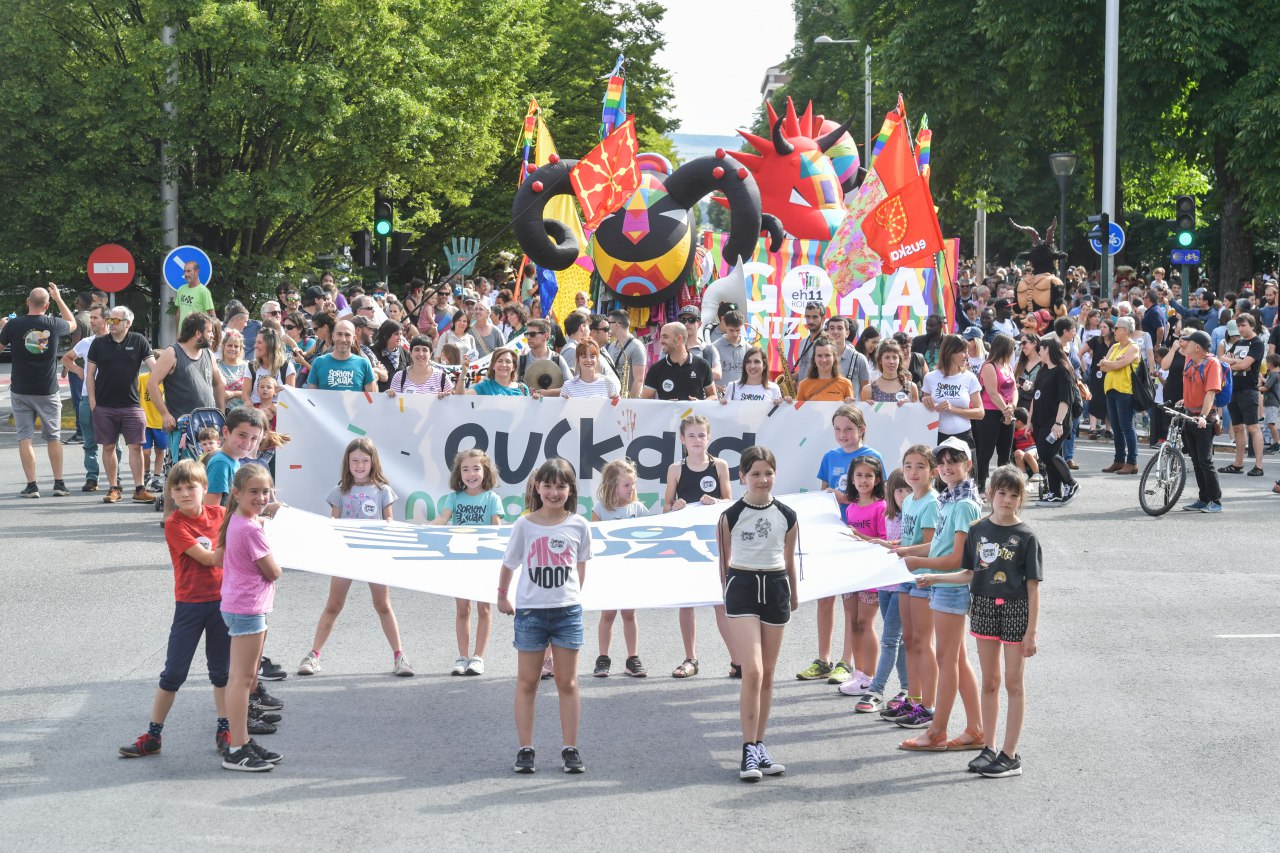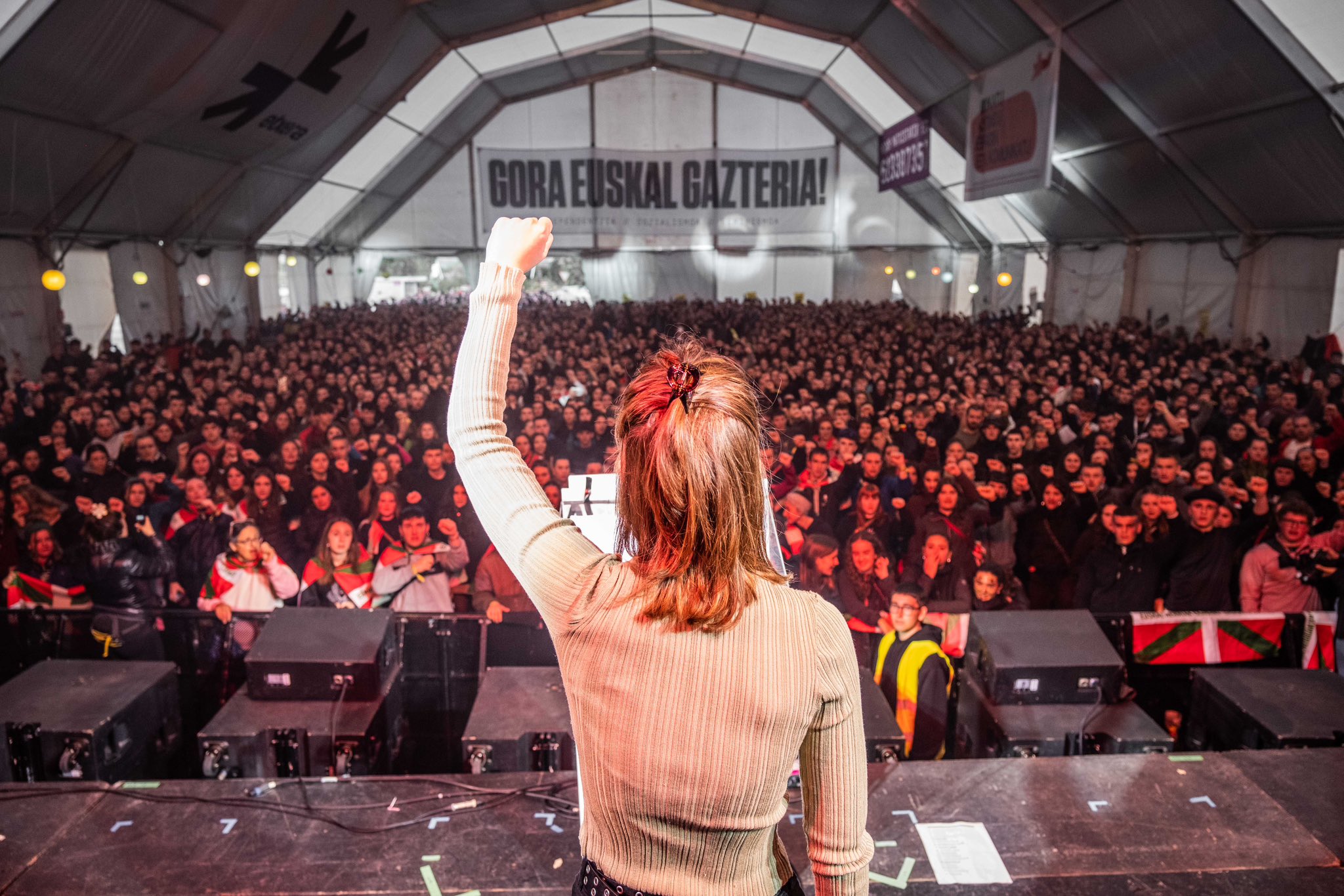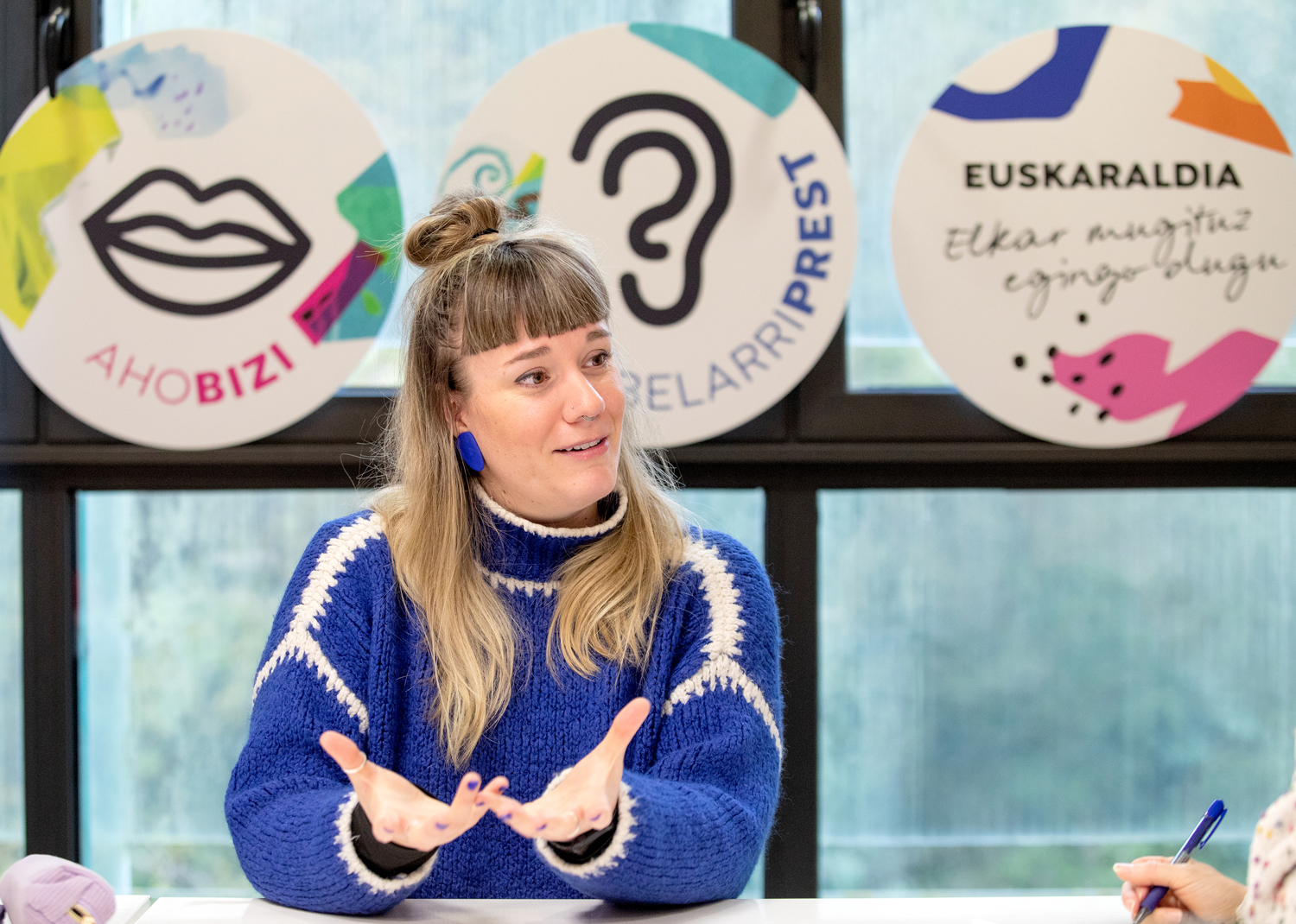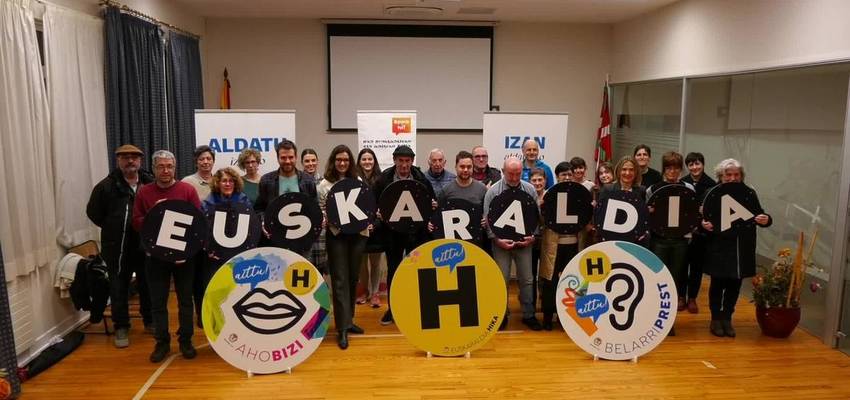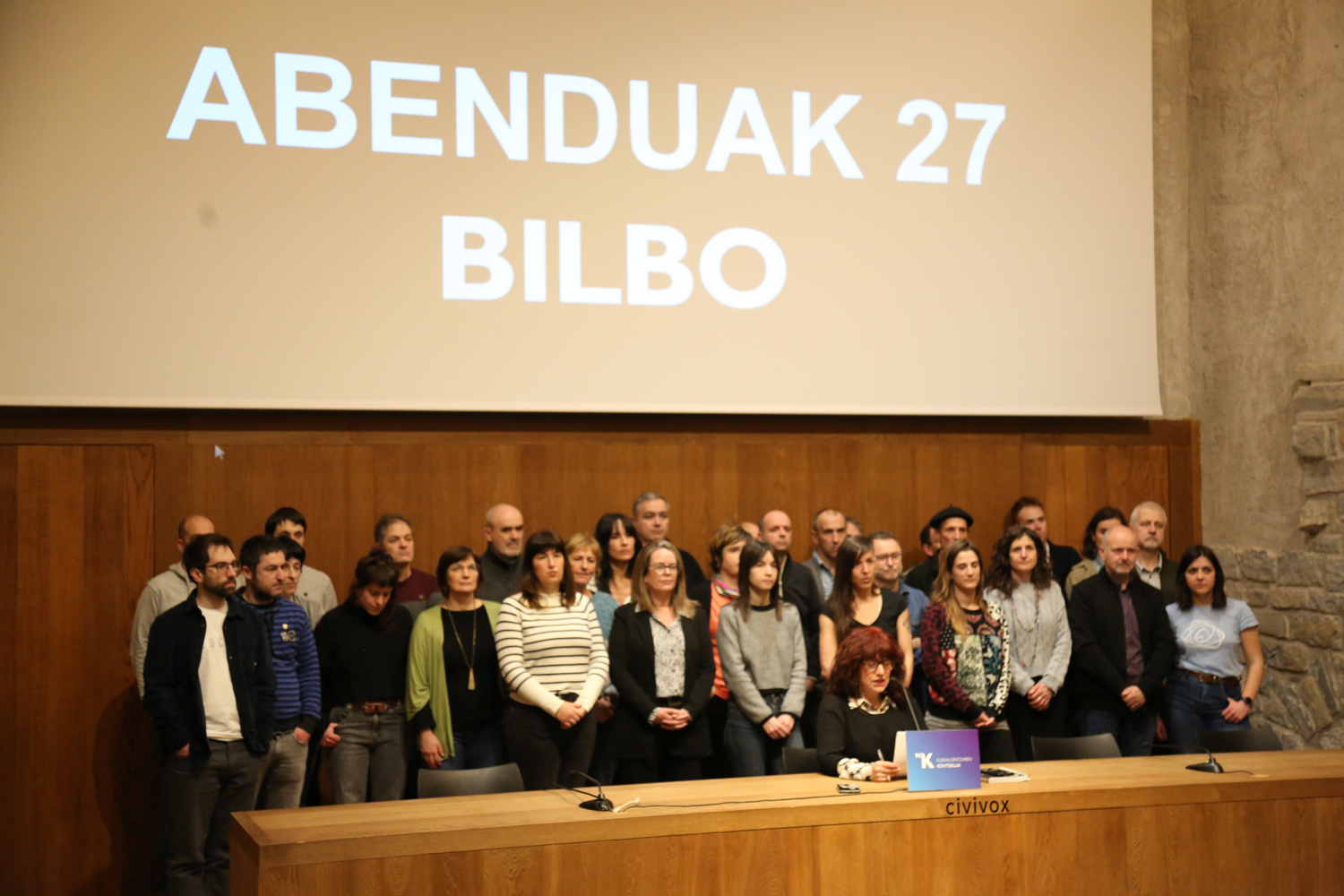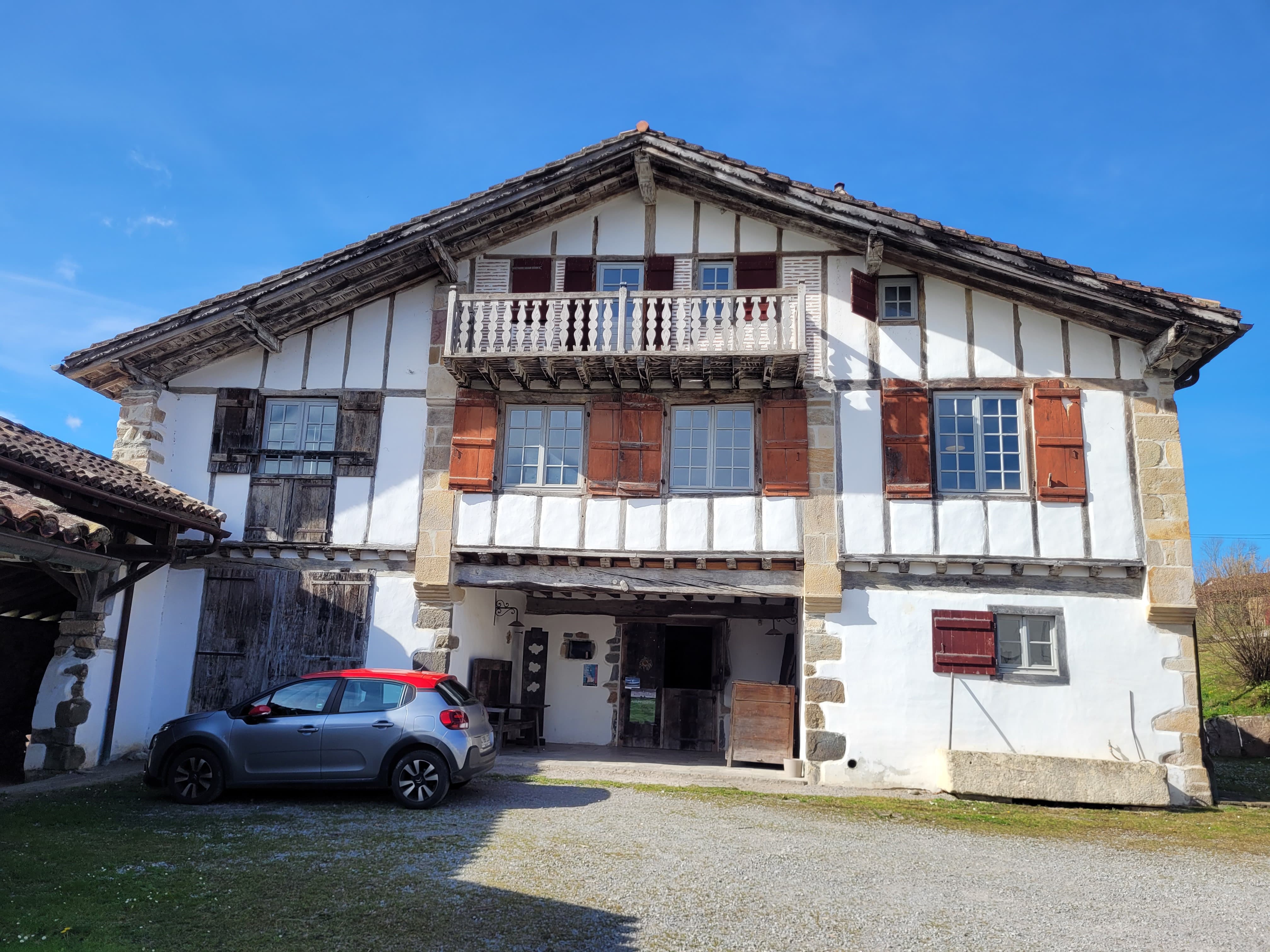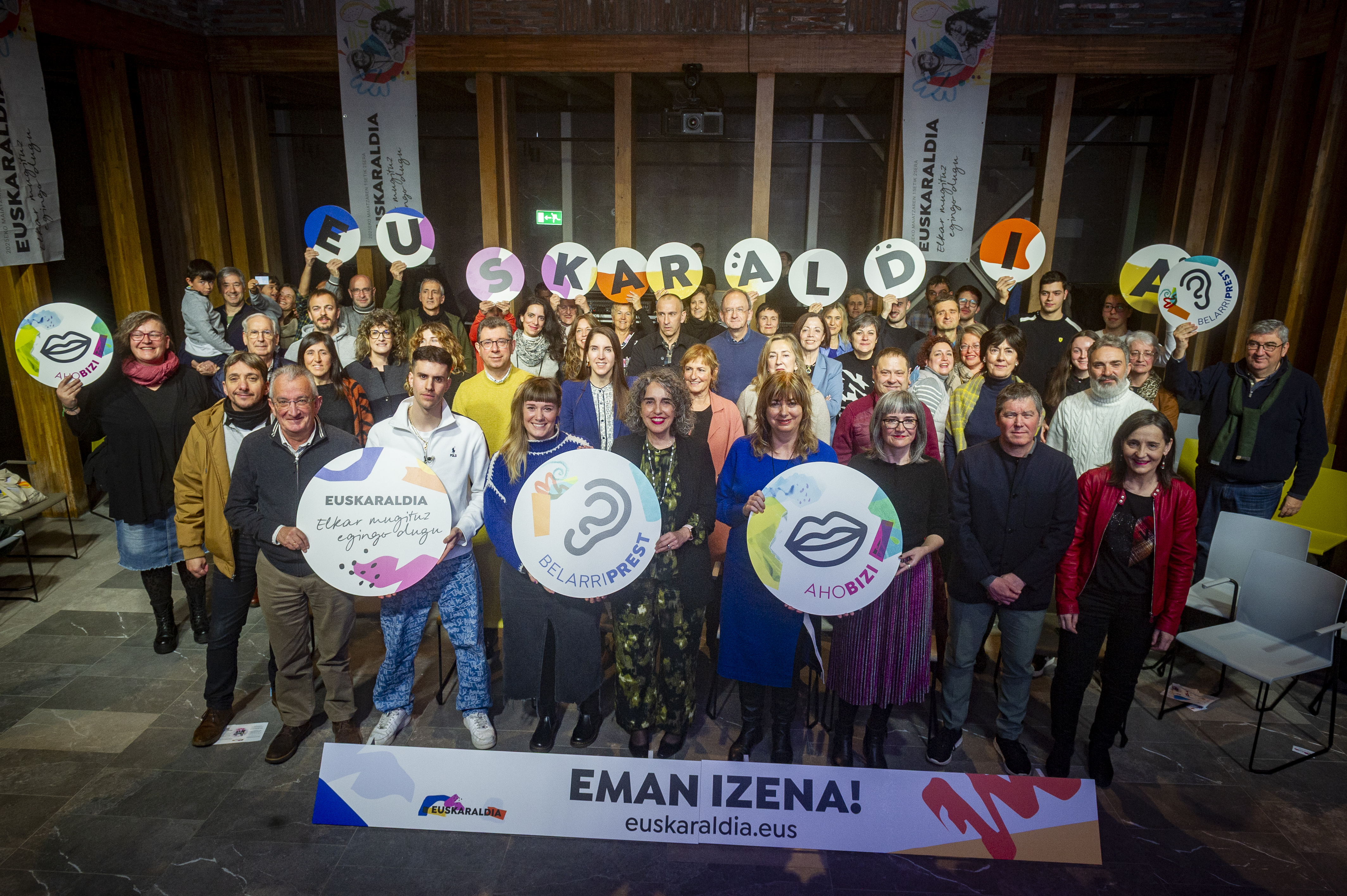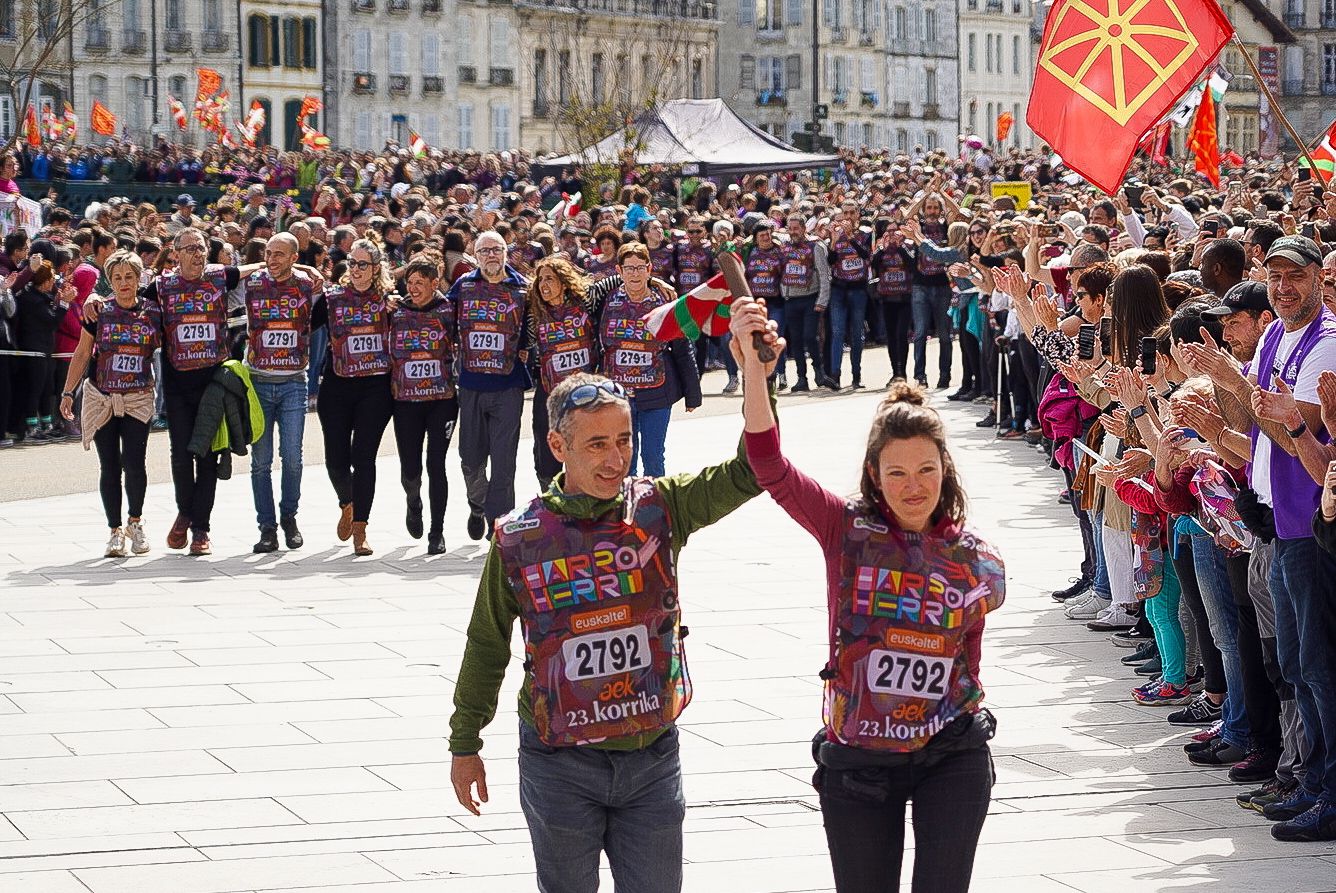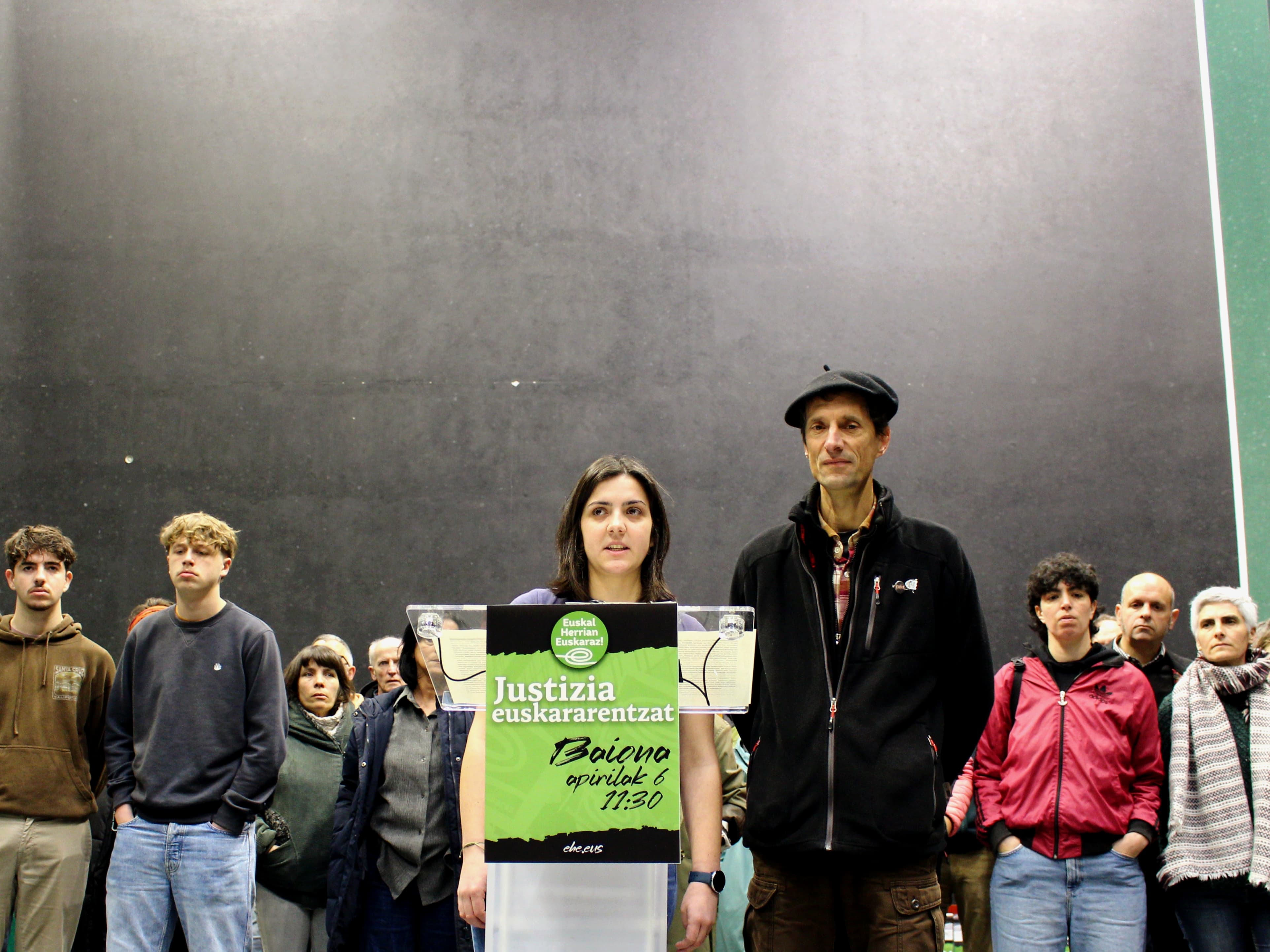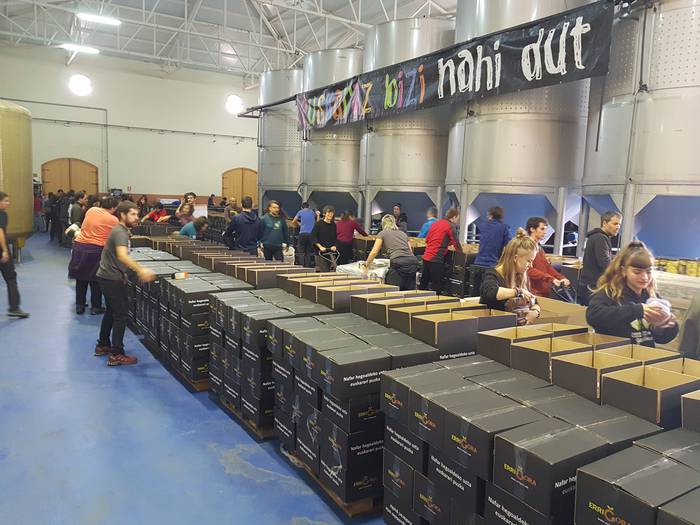“In Euskalgintza, do we also work with the vocation of working for a better society?”
- Imanol Larrañaga gave a talk at the Topagunea conference he organized in January. The dynamism of Izarra from Elgoibar raised the theme for the 2017 Meeting: Is the use of Euskera in other issues of society up to associations? Is it up to you to collaborate with the other movements? We have asked you these questions.

You said: “What unites us with the Basques is more important than what separates us. In this sense, we will only refer to topics directly related to the Basque Country. We have been wet in issues related to the Basque Country, leaving the rest of the issues for other forums”. What positive and negative consequences has this decision had in Izarra de Elgoibar?
Before I start listing and explaining the pros and cons of that decision, I want to say that they are made to comply with the decisions. Because decisions are often made, but we are tempted to interpret decisions in one way or another, with whom it is going to ask or with the proposal.
As for the good consequences, this decision has given the association a way of being and acting. The Izarrak brand in Elgoibar has had one in the town: the Basque brand. As a result, people have linked to the association with the Basque Country (alone), and that has helped the Basque people of all colours to join it.
But here too there are thorns between the roses, and the consequences are also bad. Among other things, the partners have been wiped out, only three or four in 25 years; a people have not come to the association because, according to them, we are chopsticks; some members of the association have felt that they have been reduced autonomy to participate in other social movements...
Have you taken this decision now? What was your philosophy on this subject before?
The decision is not the decision now. The decision was made in 1990, when Izarra de Elgoibar started the second stage [first stage 1963-1990], and it is still in force.
I've been with a first-stage partner, and he himself confessed to me that at the time they also had the same criteria. Although many requests were received (mainly from the Abertzale left), Izarra de Elgoibar did not participate in or comment on issues not related to the Basque Country or to Basque culture.
This year, however, we will review the Philosophical Bases of the Star of Elgoibar, review them every three years, and one partner has asked for this decision criterion to be reviewed. We will therefore reflect on this issue this year.
Turning the questions asked by you at the Meeting: Is it not for associations to get wet in other issues of society? Is it not up to you to collaborate with the other movements?
“Until now, I have been in favour of moving only on issues directly related to Basque culture and Basque culture; it was clear that this decision benefited the Star of Elgoibar. But now I have doubts.”
The Basque associations should ask us a question, in my opinion: Do we just work for Euskera? I mean, is the same society as today, but is it in Basque what we want? If it is in Euskera, do we care what the society around us looks like? Or, when we work in Basque, do we also work with the vocation of working for a better society and a better world? If we answer this question faithfully, we will be able to answer your question.
Until now, I have chosen to move only on issues directly related to Basque culture and Basque culture; it was clear that this decision benefited the Star of Elgoibar. But now I have my doubts.
I am clear that we have to get wet, that we have to be prepared to get in the mud, but I don't know how to do it. It is a sensitive issue, I see a great risk of anger among us, and that is precisely why I have proposed to Topagune to discuss it at the next Meeting.
If what unites us is more important than what separates us, we will leave the debate alive. But if that phrase is no more than a pose to be OK, I see a great danger that everything will get drunk.
It may be an interesting exercise to measure the strength of the philosophical foundations of our movement.
In the summer courses in Galicia, trade unionists, environmentalists and activists of sexual liberation talk about Galician. What do you think?
OK. This people will not be Euskaldunizar as long as the Basque (the Euskaldunes) is approached exclusively by traditional culture. The Council, the associations of Euskera, the schools, the Euskaltegis, the media in Euskera and the other institutions will do their work, but I think we have a party until we understand and assume that the problem of Euskera is the responsibility of the whole of society. The Basque account cannot be exclusive to the Euskaltzales. It's everybody's responsibility. It is an issue that affects society as a whole.
The linguistic normalizer Nel Vidal Barral, speaking of Galicia, defends the use of loopholes between social movements to influence the theme of language. And without going that far, you mentioned the words of Lorea Agirre in the Meeting: “Shake hands with the other ways of empowerment that we have sisters.” Do you think the strategy is effective?
“My heart tells me to extend my hand, but my head starts asking me questions: Who do we need to shake our hands? Who will we or will we choose? Will we treat all the sisters equally? How far will we go hand in hand?”
Yes, I think I am in favour of giving my hand. My heart tells me to extend my hand, but my head asks me questions: Who do we need to reach out to? Who will we or will we choose? Will we treat all the sisters equally? How far are we going to give our hands? Lots of questions and doubts, for the good. Before we start doing anything, I think we need to do an in-depth analysis and reflection on the subject.
In fact, someone can ask what has changed to cast doubt on what we had so clearly so far. The answer to this question must be clear, if we do not want to drift.
In Euskal Herria it is very common that in more than one salsa the same people go, suppose that the same citizenship moves in the ecologist and feminist group or in the association of Euskera and in the syndicalism of the locality.
Fortunately there is such a kind, but that has its advantages and disadvantages. It is good, for example, that the people of the associations of the Basque Country participate in other movements, as they can also influence them. But I would say that it also has its “bad” side. The Euskaltzale that has leaped so much is also “marked”, and we know the reticence that there is in our people with the people that are marked.
However, I also see the other side. Each of them chooses a part of the population and focuses (only) on it. There are a lot of people who only work in Euskera; or who only participate in feminist groups; or who only move in unionism. Popular construction may be understood in a more open way, but that requires an increase in commitment levels, an increase in militancy, and we also greatly appreciate free time.
However, as I heard at the last meeting organized by Topagunea, militancy is not measured by the hours we enter; militancy is the attitude we take towards the world.
Bilbon eginiko aurkezpenean iragarri dute ekitaldia, euskarari "arnas berri bat emateko eta behar duen indarraldia gorpuzten hasteko" lehen urratsa izango dela nabarmenduta. Euskaltzale guztiei, baina, oro har, "justizia sozialean eta gizarte kohesioan aurre... [+]
Euskaraldiaren hamaikakoa aurkeztu dute Nafarroan: Julio Soto bertsolaria, Edurne Pena aktorea, Julen Goldarazena musikaria (Flakofonki), Claudia Rodriguez Goxuan Saltsan taldeko abeslaria, Eneko Garcia (Albina Stardust), Yasmine Khris Maansri itzultzaile eta kazetaria,... [+]
Euskalgintzak Senpereko Larraldea etxea faltan botako du. Uda gabe, Bertsularien lagunak, bertan gelditzen den azken elkarteak, lekuz aldatuko du eta etxea hetsiko dute. Euskararen, euskal kulturaren eta arteen ohantzea izan da Larraldea, urte luzetan Andoni Iturrioz mezenasak... [+]
Horra Libération egunkariak berriki argitaratu duen idazkia:
“Bayonne” bukatu da, Libérationek “Baiona” idatziko du
Hiri baten izenaren erabilpena ohiturazkoa delarik, egunkari batean izen horren erabilpena aldatzea zaila da. Alta, irakurleen... [+]
Gasteizen egin duten ekitaldian ireki dute izen ematea, laugarren edizioa hasteko bi hilabete falta direla. Erakundeetako ordezkariak, herritarrak eta entitateetako kideak agertu dira, besteak beste. Euskaraldiaren koordinazioa Euskal Herriko erakunde publikoen eta Taupa... [+]
Korrikaren "bihotza eta burua" erakutsiko ditu dokumentalak. Proiektua gauzatzeko, herritarren babesa "ezinbestekoa" izango dela adierazi dute AEK eta Mirokutana ekoiztetxeak, eta apirilaren 25era bitartean crowdfunding kanpaina bat abiatuko dute jalgihadi.eus... [+]
25 bat eragilek adierazi diete elkartasuna apirilaren 11n Baionako auzitegian epaituko dituzten Intza Gurrutxaga eta Gorka Torre Euskal Herrian Euskaraz taldeko kideei. Egun batzuk lehenago, apirilaren 6an Baionan eginen den manifestazioan parte hartzeko deia ere luzatu dute.
Martxoaren 10etik 26ra izango da udaberriko kanpaina. 'Beste modura, denona de onura' lelopean arituko dira gertuko ekoizpena, banaketa eta kontsumoa babestu eta sustatzeko, ager zonaldean euskara hauspotzen duten bitartean. Apirila amaieratik aurrera jasoko dira... [+]
Otsailaren 28an Hendaian eman dio hasiera kanpainari Herri Urratsek. Euskararen transmisioa bermatzen duen Seaska babestea da helburua.












